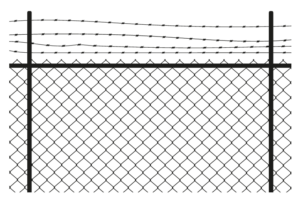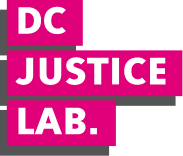

Over 20,000 people from DC are incarcerated in prison or jail, are supervised on probation, parole, or supervised release, or under some form of correctional control. More than 68,000 people have a publicly-available arrest or a conviction record — a figure so large, a truly representative DC Council would have at-least two members with records. Research shows that being involved in the justice system leads to higher rates of recidivism, worse health outcomes, and lifelong challenges around housing and employment.
Along with one's sentence, someone incarcerated will experience:

Terrible conditions
If you are incarcerated, it starts with being in DC jails that deliver food that is inedible, moldy, vermin-infested, has a health care system that has been described as “systemically dysfunctional,” solitary confinement and dangerous conditions.

Exile from your home
Because DC does not have its own prison and are incarcerated in the federal system, most people are forced to be far from their home for most or all of their sentence, in facilities that are hundreds of miles from the District.

Barriers to reintegration
There is no halfway house for men in DC. Organizations that help plan for someone’s reentry face challenges getting information on when individuals may return home, making reintegration much more difficult. Then a person faces laws, policies, and practices that prevent them from getting a job and housing, and face one of the most restrictive sets of policies in the country to get rid of their record.
All of these negative impacts on the individuals who are incarcerated or who are saddled with criminal records decrease safety.
This system of punishment almost exclusively impacts DC’s Black community: 90 percent of people in the DC jail are Black.
Roadmaps have been developed by experts and residents to change this picture. The District Task Force on Jails and Justice surveyed residents, and developed a series of recommendations that over time would bring most people punished under the system home, shrink the system, and provide robust services to help someone return to the community after being incarcerated. As of 2023, only 2 percent of these policies have been enacted or implemented.
In this section, DC Justice Lab highlights solutions to the system of punishment that would increase safety and well-being for everyone, and that are ready for legislative change. Learn more in this section about:
Issues
Halfway houses
Halfway houses were supposed to help people prepare for a future in the community, but their residents say they felt like they were still in prison.
Parole & Supervised Release
Even the United States Parole Commission doesn’t want to be the body deciding whether to deny parole to people convicted of DC Code offenses or send people back to jail.
Advocating from DC Jail
If DC Council members can't hear directly from people residing at DC Jail, they can't meaningfully exercise any oversight.
Criminal Record Sealing and Expungement
Arrest and conviction records are lifetime barriers to employment and housing.
Pregnancy and Childbirth
Every mother and child should bond in a safe and healthy environment.
Criminal Record Discrimination
People with criminal records lack core protections from the systemic discrimination they face.
Solitary Confinement
Unlike the US Congress, DC's Judiciary Committee hasn't held a hearing on solitary confinement.
Sex Registries
Registries increase homelessness and joblessness and don’t increase safety.
Earned Compliance Credits
Giving more rewards than sanctions achieves the best results for people under supervision.
Probation Caps
CAPPING PROBATION TERMS WOULD SAVE DC TAXPAYERS MILLIONS OF DOLLARS IN JAIL COSTS.
tools
Public Defender Service for the District of Columbia
The National Reentry Network For Returning Citizens


